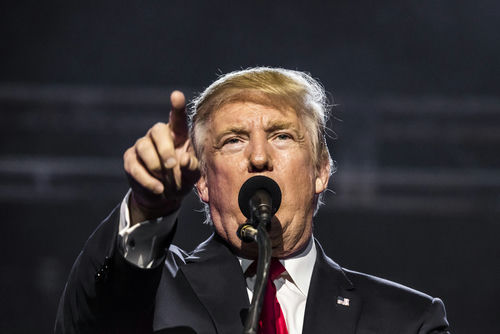President Trump’s new executive order puts those who desecrate the American flag on notice: prosecution and tough immigration penalties are now a federal priority, directly challenging years of left-leaning court decisions that many conservatives felt undermined national pride.
Trump’s Executive Order: Restoring Respect for the Flag
On August 25, 2025, President Donald Trump signed a sweeping executive order at the White House, directing the Department of Justice to prosecute anyone who desecrates the American flag—particularly through burning—to the fullest extent allowed by existing law. The order also instructs federal agencies to deny immigration benefits to foreign nationals found guilty of flag desecration and refers such cases to state and local authorities when necessary. This move follows recent high-profile incidents of flag burning during nationwide protests, which have reignited fierce debate over how American symbols should be protected.
For decades, flag desecration has been a flashpoint in America’s culture wars. The Supreme Court’s 1989 decision in Texas v. Johnson ruled that flag burning is protected symbolic speech under the First Amendment. Despite repeated legislative attempts—including the Flag Protection Act of 1989 and numerous proposed constitutional amendments—efforts to criminalize such acts have repeatedly failed. President Trump’s executive order does not create new penalties; instead, it directs aggressive enforcement of existing statutes and clarifies the administration’s intent to push the limits of current law. This approach both challenges the legal status quo and reasserts the flag as a sacred national symbol.
Key Stakeholders and Motivations
The executive order mobilizes multiple federal agencies. Attorney General Pam Bondi is tasked with prosecuting flag desecration cases and providing clear guidance to federal prosecutors. The Department of Justice and Department of Homeland Security must coordinate on enforcement and immigration consequences, while the Secretaries of State and Homeland Security are responsible for ensuring foreign nationals who desecrate the flag face immigration penalties. Protest groups and civil liberties organizations are expected to challenge the order, arguing it infringes on First Amendment rights. Meanwhile, Trump’s administration frames the order as a necessary response to reinforce patriotism and national unity amid growing political division.
By targeting flag desecration—an act many Americans view as deeply disrespectful—the administration appeals to a conservative base frustrated by what they see as leftist attacks on traditional values, national pride, and constitutional integrity. The White House has emphasized the flag’s unique role in unifying the country and has drawn a direct line between public order, respect for national symbols, and broader concerns about anti-American sentiment and foreign influence.
Legal Challenges and Constitutional Tensions
This executive action is likely to trigger significant legal challenges. Legal scholars point out that Supreme Court precedent clearly protects flag burning as symbolic speech, making the order vulnerable in the courts. The Trump administration, however, maintains that the directive targets conduct inciting violence or “fighting words”—categories not shielded by the First Amendment. Ultimately, the order’s practical effect will depend on how courts interpret its scope and whether it can be reconciled with established free speech jurisprudence. Some experts suggest that the order’s main impact may be symbolic, signaling a sharp shift in political priorities and energizing public debate over patriotism and protest.
While conservatives and self-described patriots applaud the move as overdue, critics warn of government overreach and the chilling effect on legitimate protest. The executive order’s true test will come as prosecutors, courts, and advocacy groups grapple with its enforcement in the months ahead.
Broader Impact: Social and Political Implications
In the short term, increased scrutiny and prosecution of protest-related flag desecration are likely. Foreign nationals may face heightened immigration risks if found guilty of such acts. The order could deter some protest activity, as legal consequences become more severe and publicized. Over the long term, renewed litigation and possible Supreme Court review are expected, ensuring the debate over the flag’s symbolic status and the boundaries of free speech will remain at the forefront of national conversation. Socially and politically, this move strengthens Trump’s standing with conservatives while provoking strong opposition from civil liberties groups—yet again illustrating the deep divisions over what it means to respect America’s core values.
Sources:
White House Fact Sheet: President Donald J. Trump Protects the American Flag from Desecration
Trump signs order pushing prosecution of flag burning — Axios
Executive Order on Prosecuting the Burning of the American Flag
Trump signs executive order targeting flag burning — CBS News
Click this link for the original source of this article.
Author: Editorial Team
This content is courtesy of, and owned and copyrighted by, https://www.conservativecardinal.com and its author. This content is made available by use of the public RSS feed offered by the host site and is used for educational purposes only. If you are the author or represent the host site and would like this content removed now and in the future, please contact USSANews.com using the email address in the Contact page found in the website menu.





